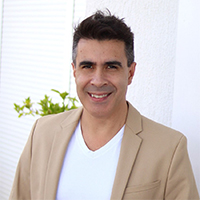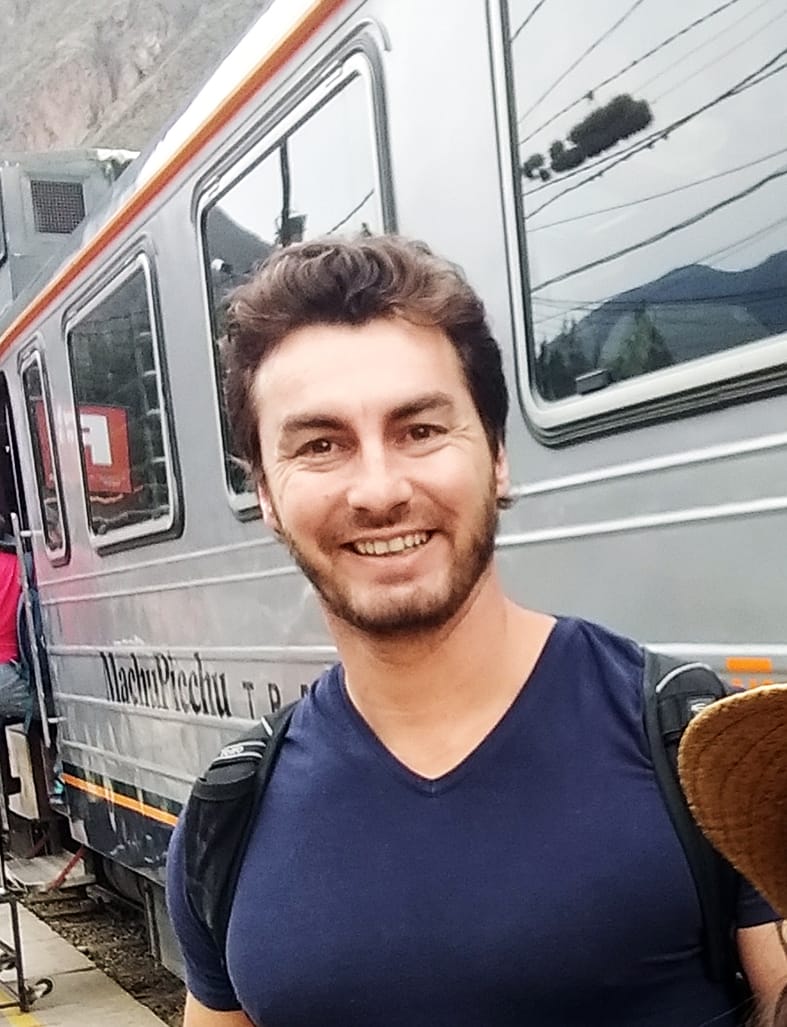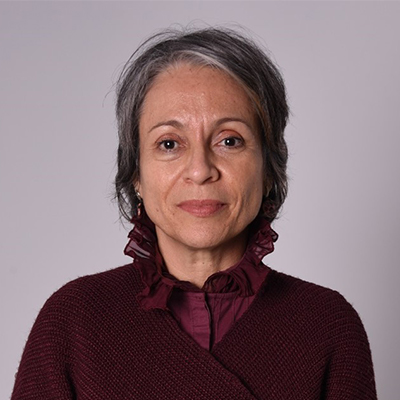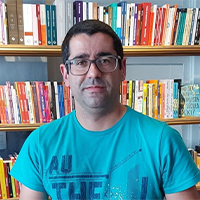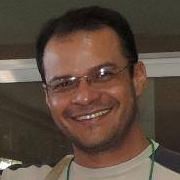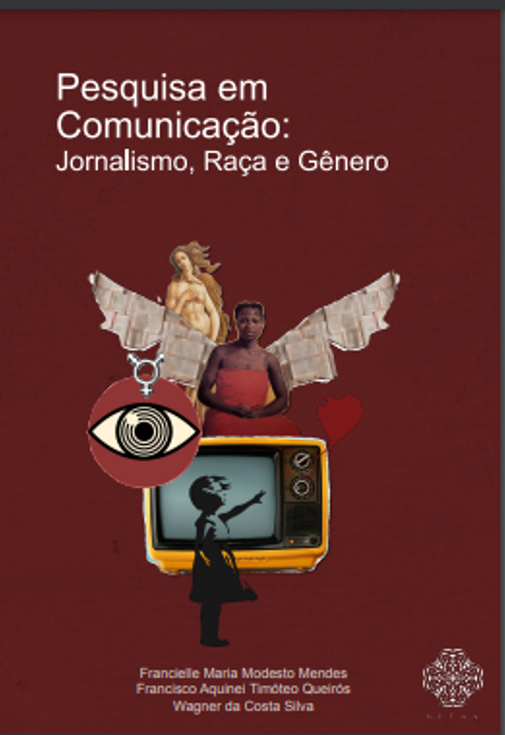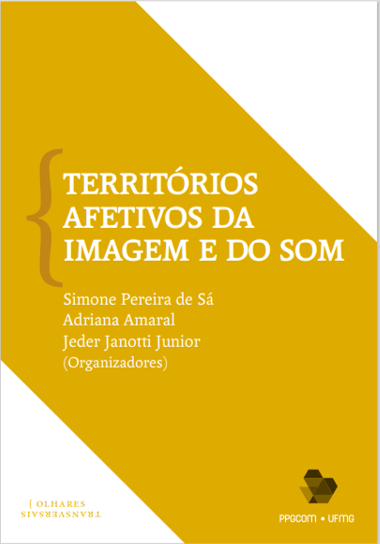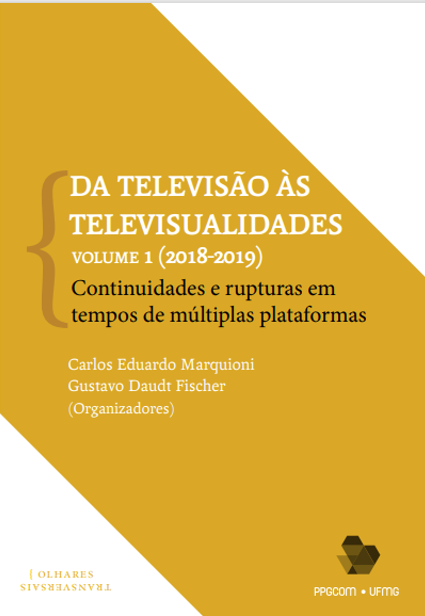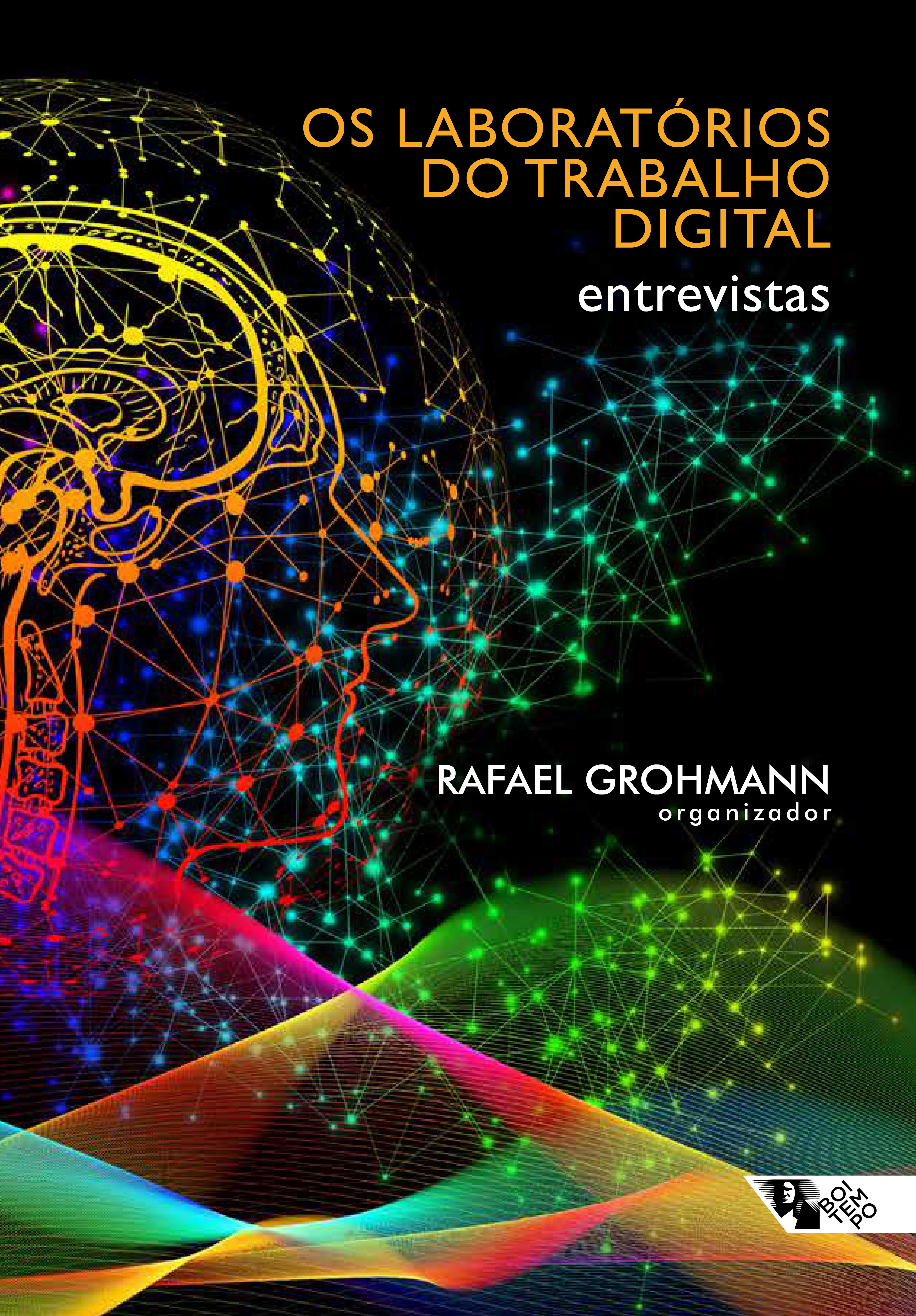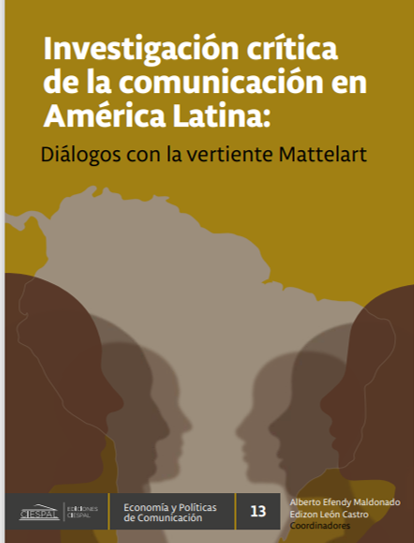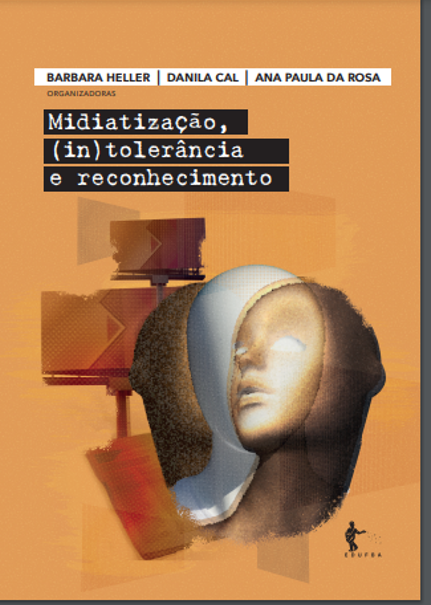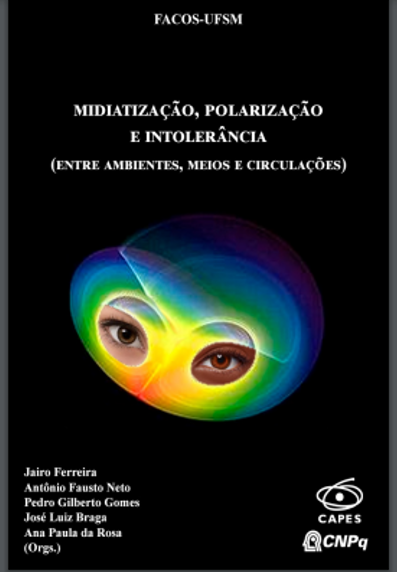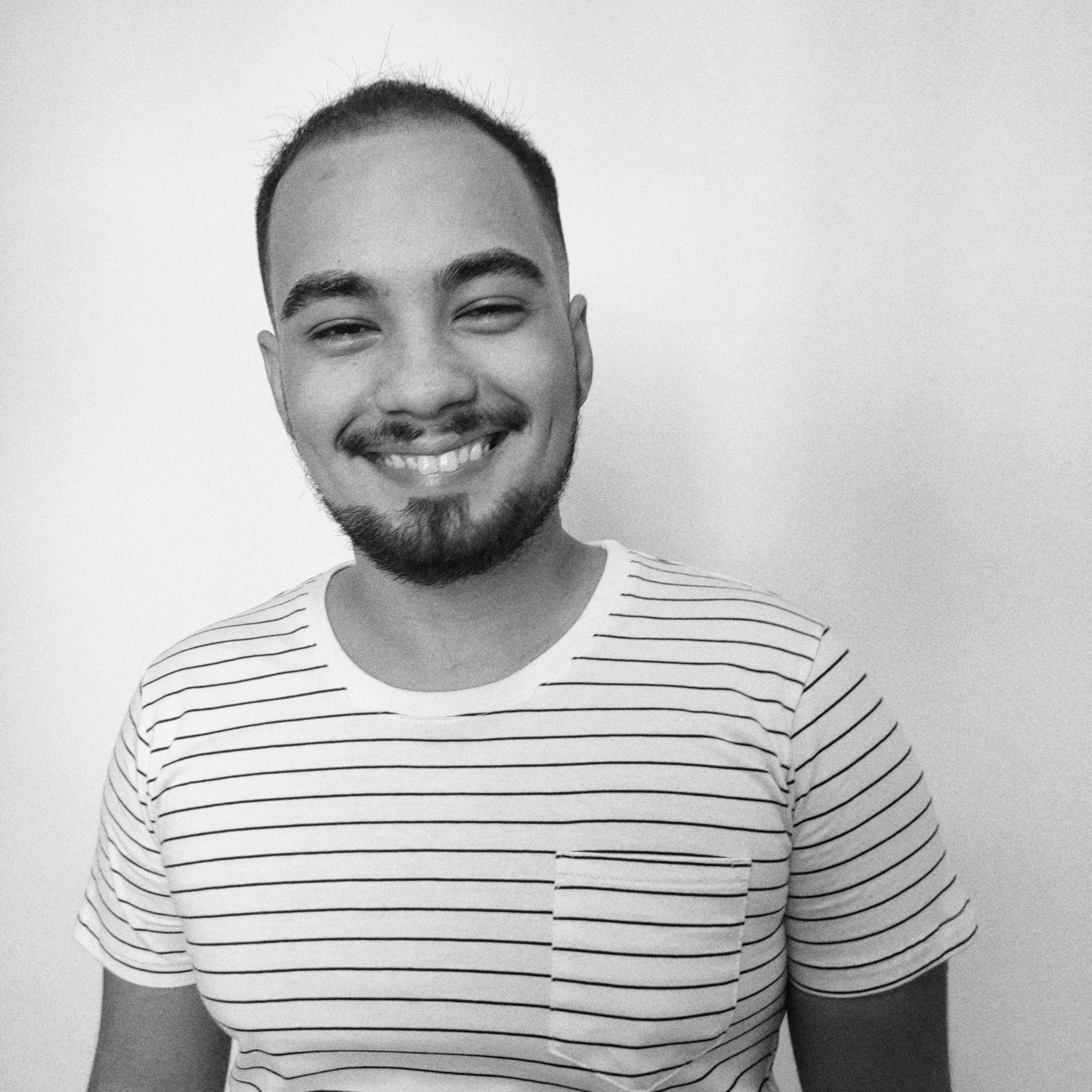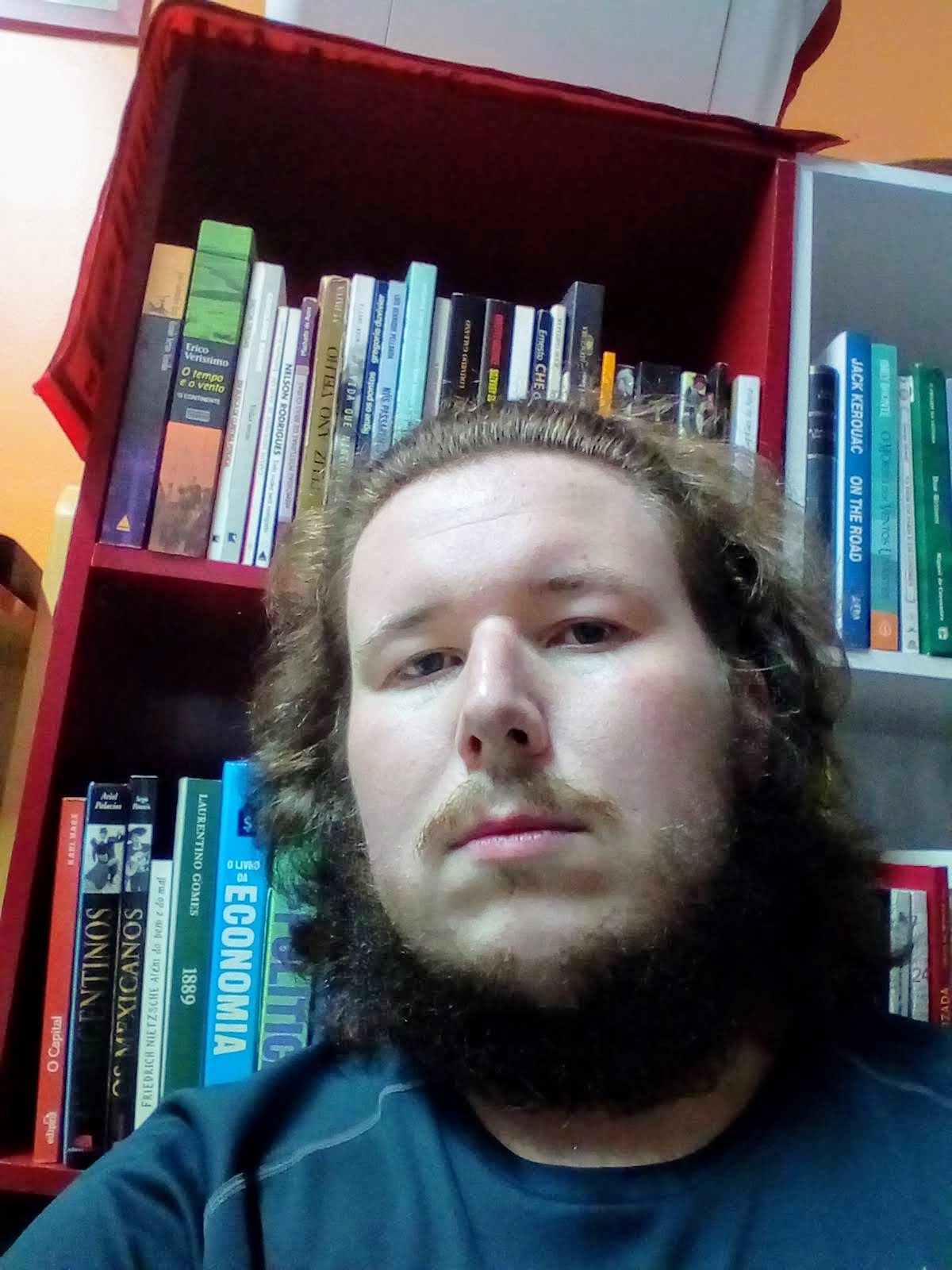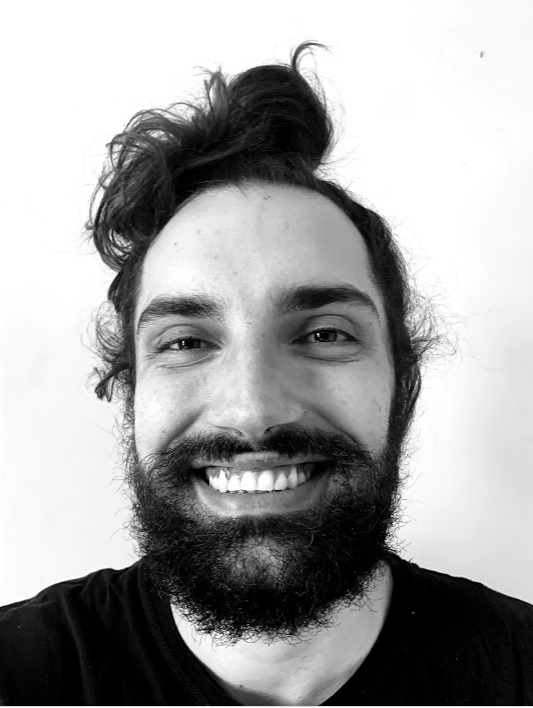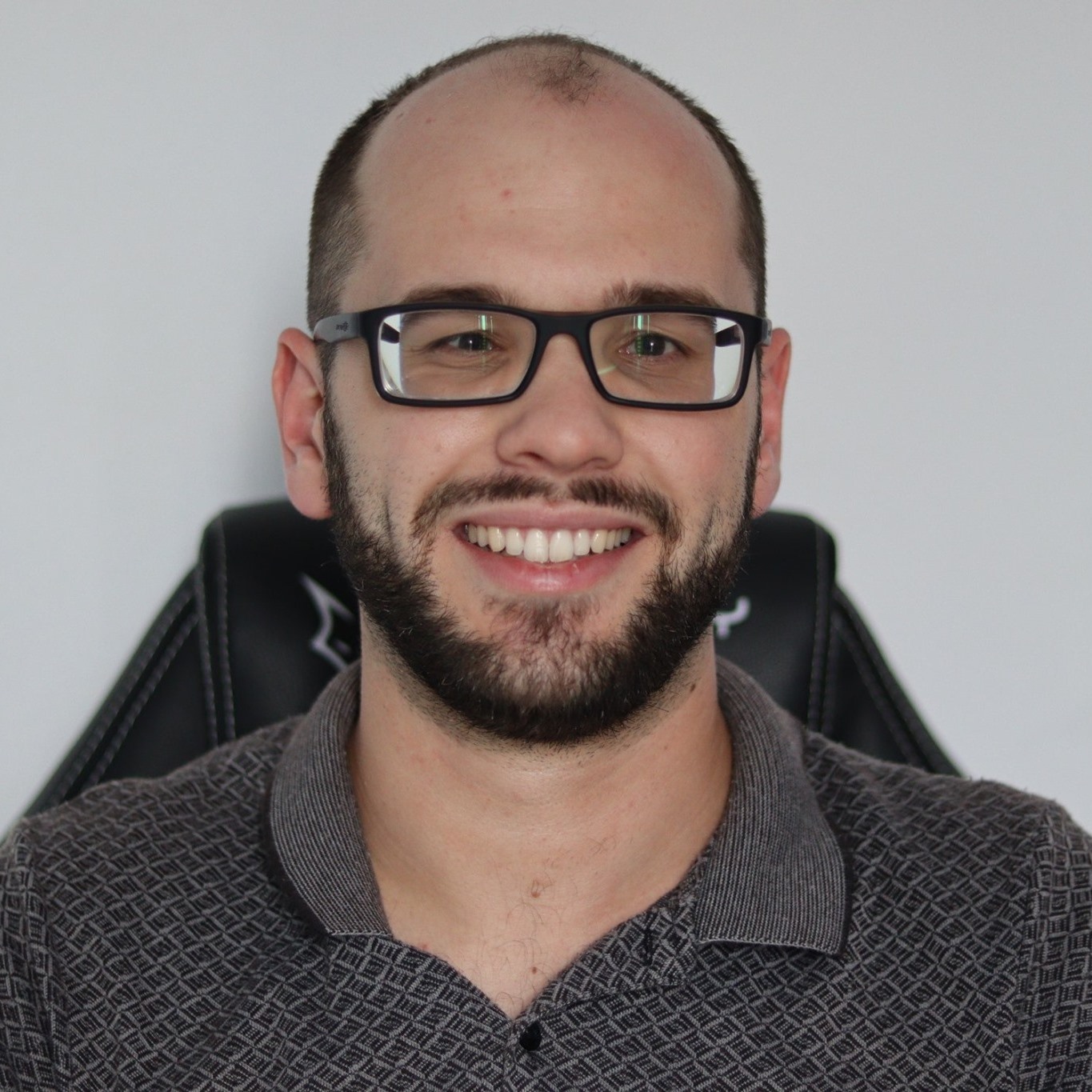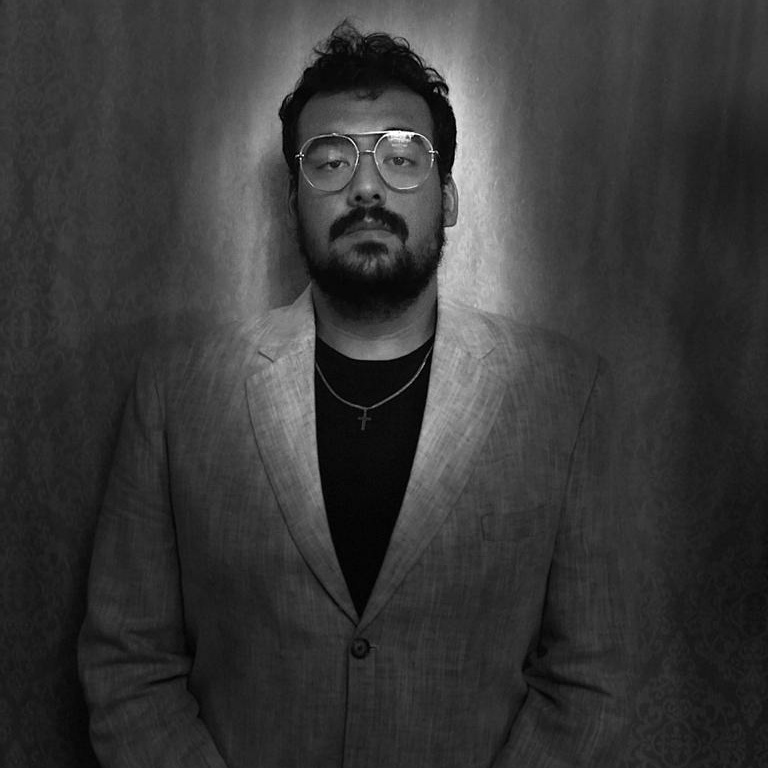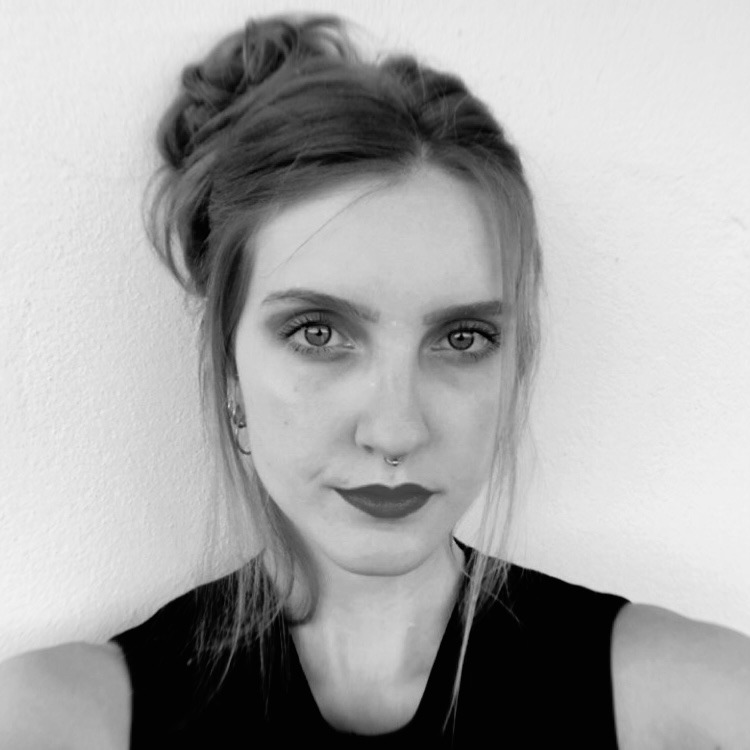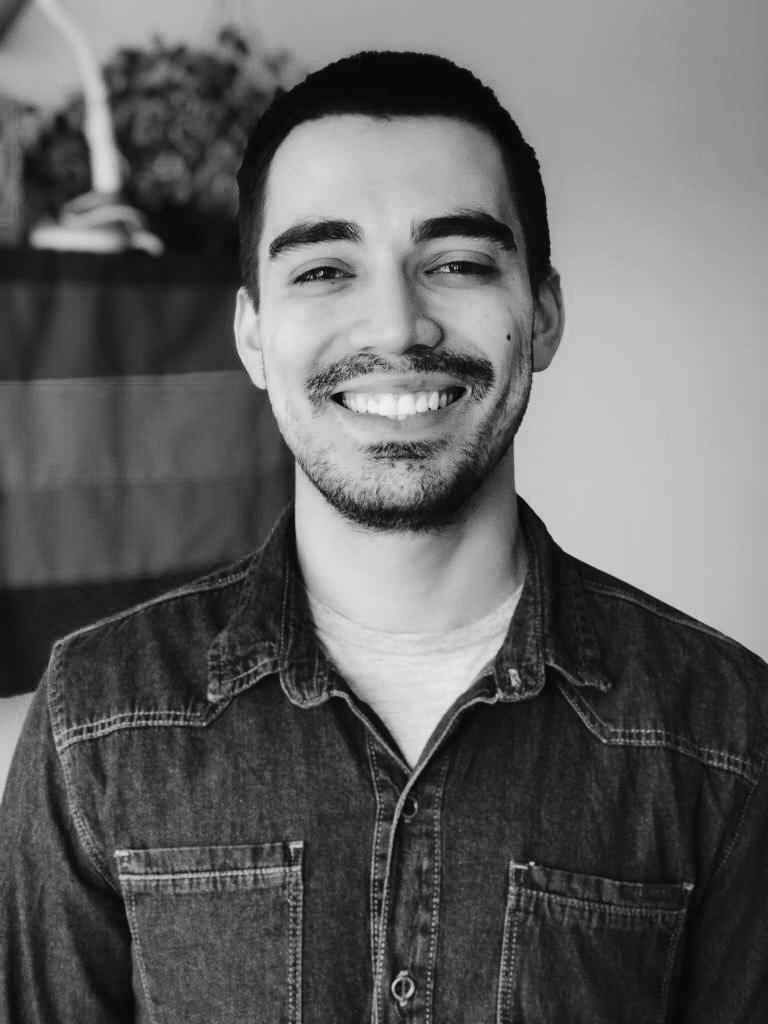CULTPOP - Cultura Pop, Comunicação e Tecnologias
Líder: Adriana Amaral
O Laboratório de Pesquisa CULTPOP – Cultura Pop, Comunicação e Tecnologias, registrado no CNPq e vinculado ao Programa de Pós-Graduação em Ciências da Comunicação da Escola da Indústria Criativa da Universidade do Vale do Rio dos Sinos (UNISINOS) em nível de Mestrado e Doutorado se dedica desde sua fundação em 2011 aos estudos sobre a cultura pop e suas interfaces com a cultura digital na área de Comunicação. O laboratório se dedica à formação de pesquisadores dos mais variados níveis desde a Iniciação Científica, Mestrado, Doutorado e Pós-Doutorado. O CULTPOP se dedica à pesquisa na intersecção entre a cultura pop, a comunicação e as tecnologias tendo múltiplos aportes teórico-metodológicos para pensar o papel da cultura pop no contemporâneo e suas relações entre performances, materialidades, mídias, culturas urbanas e estéticas. Os enfoques do laboratório de pesquisa têm como finalidade a reflexão, a crítica e a elaboração de propostas de pesquisa que pensem a cultura pop no contexto das transformações digitais no âmbito de suas práticas e processos de sociabilidade. Dentro desse escopo nossas investigações privilegiam temáticas como a das cenas musicais, subculturas, linguagens e produtos midiáticos da cultura pop, consumo e suas audiências e fãs a partir das relações com as subjetividades e interseccionalidades e das micro-políticas e resistências cotidianas. Além da pesquisa acadêmica, nossa missão diz respeito à popularização da ciência através das dinâmicas e linguagens da cultura pop nos ambientes digitais e à elaboração de políticas públicas relacionadas às áreas das indústrias criativas.
Site: https://cultpoplab.com/
Digilabour
Líder: Rafael Grohmann
O Laboratório de Pesquisa DigiLabour produz investigações em torno das conexões entre mundo do trabalho e tecnologias digitais. Apresenta focos nos temas de trabalho por plataformas e plataformização do trabalho; cooperativismo de plataforma, autogestão e arranjo alternativos de trabalho; perfis e condições de trabalho de profissionais de comunicação e da indústria criativa; organização coletiva de trabalhadores e tecnologias digitais; algoritmos e inteligência artificial no trabalho; dataficação e vigilância no trabalho; circulação de sentidos em relação ao mundo do trabalho; materialidades do trabalho em plataformas; relações de comunicação no mundo do trabalho; circuito produção-consumo e cultura digital. Mantém uma newsletter com o objetivo de curar, produzir e circular conteúdo sobre essas temáticas. Tem como valores o impacto social, a comunicação da ciência e a internacionalização.
Site: https://digilabour.com.br/
Projetos em Desenvolvimento: https://digilabour.com.br/projetos/


EPISTECOM
Líder: Jairo Ferreira
O objetivo central deste grupo é refletir sobre as interfaces, empíricas e epistemológicas, da linhagem de pesquisa midiatização e processos sociais em diversos níveis:
a) perspectivas epistemológicas relativas ao conceito de midiatização, em pesquisas em desenvolvimento em diversos quadrantes do planeta;
b) interfaces entre a linhagem de pesquisa midiatização e outras linhagens, especialmente relativas às mediações, cibercultura e imagem;
c) interfaces entre essa linhagem e perspectivas fundadas pelas teorias sociais, da linguagem e informacionais-cibernéticas. Os focos podem incidir sobre os meios, seus usos sociais em diversos níveis, os circuitos e interações derivadas disso, as mutações dos campos de especialistas, dos espaços privados e suas configurações em espaço público. No contemporâneo, investiga especialmente a mediação dos algoritimos, produzidos conforme lógicas do projeto de inteligência artificial. Pergunta-se sobre novas condições da espécie nesse contexto.
Meios editados pelo grupo:
Blog Midiaticom: https://www.midiaticom.org/
Revista Questões Transversais: http://revistas.unisinos.br/index.php/questoes/index
Hotsite Seminário Midiatização: https://www.midiaticom.org/seminario-midiatizacao/
Anais de Artigos: https://midiaticom.org/anais/index.php/seminario-midiatizacao-resumos/issue/archive
Anais de resumos ampliados: https://midiaticom.org/anais/index.php/seminario-midiatizacao-resumos/issue/archive


Laboratório da Circulação, Imagem e Midiatização – LACIM
Líder: Ana Paula da Rosa
O grupo se constitui como um espaço de discussão e reflexão sobre os processos comunicacionais complexificados pela midiatização, tendo como eixo central as imagens e a circulação. A proposta é laboratorial na medida em que aproxima o debate da circulação das investigações do imaginário, com ênfase nas abordagens do imaginário midiático, e que visa desenvolver metodologias para análise e observação dos fluxos, configurando um observatório midiático que contemple a dimensão do sensível. Assim, entende-se que a multiplicidade de perspectivas teóricas e de objetos tensionada pelos aportes da midiatização evidencia um potencial de descobertas que envolva a tríade imagens; coletivos e a circulação de sentidos amplificadas pelo cenário do digital. A repercussão esperada pelo grupo é estimular a produção científica qualificada, desenvolver pesquisas no âmbito da pós-graduação que se voltem para os fenômenos da imagem, do imaginário, de suas apropriações sociais, além do trabalho em rede. Assim os integrantes do grupo se organizam em torno de 3 eixos: Circulação e Processos de Produção de sentido, Imagens em Circulação e imaginários e Midiáticos e Midiatização: entre operações e lógicas de transformação social.
Para mais informações e acesso às nossas pesquisas e eventos, acesse nossas redes:
Site: https://www.lacim.com.br
O grupo também participa da edição de:
Blog Midiaticom: https://www.midiaticom.org/
Revista Questões Transversais: http://revistas.unisinos.br/index.php/questoes/index
Hotsite Seminário Midiatização: https://www.midiaticom.org/seminario-midiatizacao/
Anais de Artigos: https://midiaticom.org/anais/index.php/seminario-midiatizacao-resumos/issue/archive
Anais de resumos ampliados: https://midiaticom.org/anais/index.php/seminario-midiatizacao-resumos/issue/archive



LIC - Laboratório de Investigação do Ciberacontecimento
Líderes: Ronaldo Henn e Maria Clara Aquino
O LIC reúne um conjunto de pesquisas que tratam da produção e circulação de acontecimentos no âmbito das redes e plataformas digitais. Através de estudos que se articulavam na revisão de teorias sobre o acontecimento, da produção de sentidos nos ambientes culturais e das questões trazidas pelo universo da cultural digital, chegou-se na elaboração do conceito de ciberacontecimento, cuja principal marca é conter, na sua natureza, a textura das redes sociais digitais. Atualmente, as pesquisas em andamento pelo grupo projetam mapeamento e monitoramento de processos que se dão nas conexões em rede e que possuem potencialidades como fontes de geração de acontecimentos jornalísticos. O grupo desenvolve experiências metodológicas que envolvem a utilização de softwares de monitoramento, rastreamento e visualização, e também processos de análises qualitativas com perspectivas semióticas e etnográficas. O aprofundamento realizado nas análises sobre os ciberacontecimentos abriu espaço para o desenvolvimento de um método de pesquisa próprio do LIC. A análise de construção de sentidos em redes digitais, que se constitui de forma macro, através de conexões e linhas produzidos pelos atores sociais envolvidos, e a que se dá no plano micro, constituída pelas conexões entre os atores sociais, que desencadeiam semioses específicas. Através do desenvolvimento deste método, aliado ao emprego de softwares de coleta e análise de dados em redes digitais, tem sido possível mapear casos e analisar seus desdobramentos nas e para além das redes. Há um campo vasto de setores que pode recolher insumos dessas pesquisas, como os movimentos sociais, os estudos de gênero, a cultura pop, as organizações políticas, a economia criativa, os processos de produção no jornalismo e a desinformação. Aparecem em destaque: processos transnarrativos e hipermidiáticos que incluem a presença de outros atores; a reverberação instantânea que passa a ser incorporada na própria narrativa, também a constituindo; e a eclosão desses outros modos de acontecimento que se tramam no cenário de conexões sistêmicas altamente complexas.
Para mais informações e acesso às nossas pesquisas e eventos, acesse nossas redes:



MIDIATIZAÇÃO E PROCESSOS SOCIAIS
Líderes: Antônio Fausto Neto e Pedro Gilberto Gomes.
O propósito do grupo reside na reflexão aprofundada e no estímulo às trocas de conhecimento, rotinas, procedimentos em torno das investigações realizadas por membros, pesquisadores individuais e grupos de pesquisa nacionais e internacionais sobre a Midiatização. Neste sentido valoriza-se a discussão epistemológica da midiatização e dos processos midiáticos, o estímulo à proposição de metodologias e teorias disruptivas, além da pesquisa empírica. Para além destes três pilares, o Grupo de Pesquisa Midiatização e Processos Sociais (que tem por base os professores e alunos da Linha de Pesquisa Midiatização e Processos Sociais do PPGCC) enfatiza os processos de internacionalização como referência para atividades de pesquisa, formação, solidariedade, nucleação, impactos e inserção local, regional e nacional. Visa também tornar públicas as atividades dos grupos e redes vinculados ao Grupo e se constituir em fonte para pesquisas sobre o tema, nacional e internacionalmente. Dentre as atividades destacadas pode-se indicar Seminário Internacional em Midiatização (coordenado pelo. Prof. Jairo Ferreira), o CISECO (coordenado pelo prof. Antônio Fausto Neto) e as publicações bibliográficas. O grupo também articula e congrega os demais grupos vinculados à linha de pesquisa Midiatização e Processos Sociais do PPGCC: Epistecom e LACIM.
O grupo é co-gestor científico na edição dos seguintes meios :
Blog Midiaticom: https://www.midiaticom.org/
Revista Questões Transversais: http://revistas.unisinos.br/index.php/questoes/index
Hotsite Seminário Midiatização: https://www.midiaticom.org/seminario-midiatizacao/
Anais de Artigos: https://midiaticom.org/anais/index.php/seminario-midiatizacao-resumos/issue/archive
Anais de resumos ampliados: https://midiaticom.org/anais/index.php/seminario-midiatizacao-resumos/issue/archive
Site Ciseco: http://www.ciseco.org.br/


PROCESSOCOM
Líderes: Jiani Adriana Bonin e Alberto Efendy Maldonado Gómez de la Torre
O grupo de pesquisa Processos Comunicacionais: Epistemologia, Midiatização, Mediações e Recepção – PROCESSOCOM trabalha na fundamentação, construção e sistematização de investigações científicas em Comunicação. Tem como linha central a formação de pesquisadores numa perspectiva transformadora. Explora, em termos metodológicos, uma epistemologia crítica que busca articular sabedorias milenares com estratégias inovadoras para a resolução de problemas de relevância social, histórica e política. Investiga numa perspectiva Transmetodológica, opção epistemológica que afirma a necessidade de confluência/confrontação fortalecedora de epistemes, teorias e métodos em perspectiva transformadora e desenvolve processos de experimentação e invenção metodológicas. As pesquisas do grupo incluem problemáticas que vinculam processos comunicacionais/midiáticos, cultura e cidadania. Como eixo temático central, a cidadania comunicativa é pesquisada em dimensões que incluem o exercício, a participação, a produção, a criação, a fruição e os direitos das pessoas, como sujeitos comunicantes interculturais nas sociedades informatizadas, midiatizadas e multidimensionais de nosso tempo. O grupo é articulado à Rede AMLAT - Rede Temática Comunicação, Cidadania, Educação e Integração Na América Latina.
Site: http://www.processocom.org
Site Rede Amlat: http://www.redeamlat.org/




TCAV – Audiovisualidades da Tecnocultura: Comunicação, Memória e Design
Líder: Gustavo Daudt Fischer
O diretório volta-se paras as tendências comunicacionais, memoriais, projetuais e experimentais do audiovisual, inscrevendo-o em um campo heterogêneo de formatos, suportes e tecnologias que atravessam e transcendem as mídias, por convergência e dispersão. As pesquisas autenticam e analisam audiovisuais em contextos midiáticos e em contextos não reconhecidamente midiáticos ou audiovisuais; reconhecem a historicidade e especificidade do cinema, da televisão, do vídeo e das mídias digitais, e as investigam na perspectiva mais geral de um aparelho e de uma ecologia audiovisual; buscam compreender suas linguagens e configurações nos usos e apropriações praticados pelas mídias e pelos espectadores, entendidos esses, agora, também como protagonistas. Emergentes da cena contemporânea, tais usuários são desafiados e seduzidos a também agirem - até mesmo de forma projetual - em larga escala, como as mídias, na medida em que se disponibilizam a eles mais e melhores ferramentas de realização audiovisual, mais ou menos dissemináveis na rede comunicacional expandida pela Internet. Tais práticas das mídias e dos usuários inscrevem as audiovisualidades como substâncias da cultura, impactada pela importância crescente do design em seu devir.
Site oficial: https://tecnoculturaaudiovisual.com.br/




CONHEÇA MAIS GRUPOS DE PESQUISA AQUI



